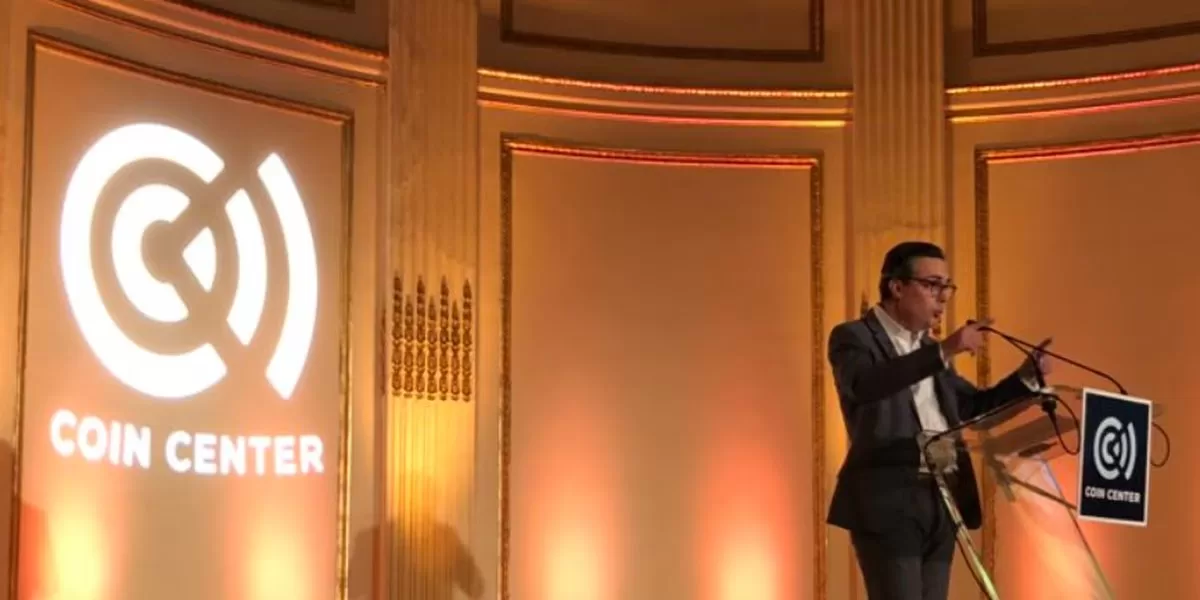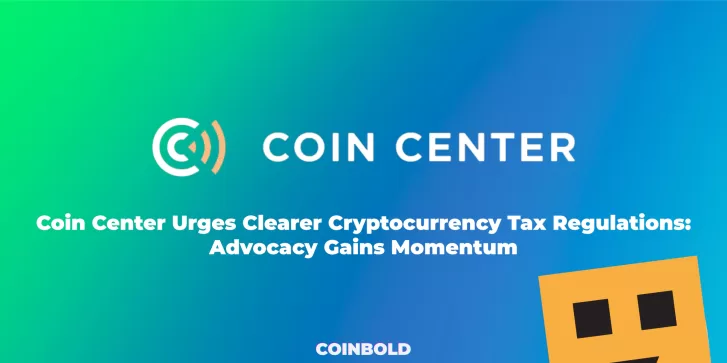Coin Center, a non-profit organization focused on cryptocurrency research and advocacy, has turned its attention to the pressing issue of unclear cryptocurrency regulations. In an effort to establish more defined guidelines, especially in the realm of taxation, Coin Center has directed its appeal to members of Congress. The organization’s recent policy input highlights the need for transparent directives in taxing cryptocurrencies, property taxes, capital gains, and micropayment applications.
Coin Center Navigates Murky Waters of Cryptocurrency Regulations
In the intricate landscape of cryptocurrency, regulatory uncertainties continue to cast a shadow on the industry’s growth. At the forefront of advocacy and research, Coin Center has embarked on a mission to bring clarity to cryptocurrency regulations. As the industry matures, nonprofit organizations recognize the urgency of well-defined guidelines, particularly when it comes to the labyrinthine realm of taxation.

A Plea for Clarity: Coin Center’s Congressional Outreach
In a noteworthy move, Coin Center has reached out to Congress for a crucial cause. On August 21st, the organization addressed a letter to Senator Ron Wyden and Senator Mike Crapo, both of whom wield influence on the Finance Committee. The missive carried with it a series of recommendations that underscored the imperative of transparent and consistent regulation of blockchain technology.
Deciphering Cryptocurrency Taxation: Key Insights
Within the ambit of taxation, Coin Center highlighted pivotal points that demand immediate attention. The organization drew attention to the complexity surrounding property taxes on cryptocurrencies and the imposition of capital gains taxes on profitable digital asset transactions. Emphasis was placed on the need for well-structured guidelines for calculating the basis of these transactions, along with a proposed threshold below which taxes would not be applicable.

Taming the Complexity of Micropayments
The letter’s scope extended to the intricate domain of micropayments, where cryptocurrencies have the potential to revolutionize transactions. Coin Center aptly underscored the potential predicament stemming from the absence of a “de minimis exemption from capital gains taxation.” In practical terms, this could mean that cryptocurrency users might face tax events with every digital currency expenditure, even for nominal sums. This complexity could hinder the seamless use of cryptocurrencies, especially in innovative applications where transactions could involve mere pennies.
Drawing Parallels in Mining: A Unique Perspective
Coin Center’s policy input also extended to the realm of cryptocurrency mining. The organization proposed that rewards earned from mining or staking on cryptocurrency networks should not be treated as taxable income at the point of generation. To illustrate this perspective, Coin Center likened these rewards to fruit ripening on a taxpayer’s land, crops flourishing in her fields, or a calf born to her cow. This analogy provides a fresh angle on the taxation of rewards in the evolving landscape of cryptocurrency mining.
A Long-Standing Quest for Clarity
It’s worth noting that Coin Center’s quest for regulatory clarity is not a recent development. Since 2020, the organization has been advocating for a nuanced exemption in cryptocurrency rules. However, the lack of definitive regulations pertaining to cryptocurrency taxes has continued to cast a cloud over the industry. Coin Center’s recent outreach to Congress underscores the organization’s persistence in pushing for regulatory coherence and clarity in an ever-evolving landscape.
As Coin Center’s advocacy gains momentum, the cryptocurrency industry watches with anticipation for potential shifts in regulations that could significantly impact the landscape of taxation and operational feasibility.

